We use cookies to personalize content, provide social media features and analyze traffic. You can get more information by visiting our cookie policy. You can configure cookies without accepting them by clicking hither.
These are the best AI-powered CRMs right now:
- Harmonix AI
- HubSpot CRM with AI
- Zoho CRM Plus
- Salesforce Einstein
- Freshsales with Freddy AI
- Pipedrive with Smart Docs
- Monday Sales CRM
- Nimble CRM
- Close CRM
- Copper CRM
- Keap (formerly Infusionsoft)
- Nutshell CRM with Sales Automation
- Insightly CRM with AI Analytics
- Creatio CRM with Intelligent Workflow
- SugarCRM with SugarPredict
The evolution toward the best AI CRM is completely changing how businesses manage customer relationships.
It's no longer just about storing data, but about anticipating, automating, and acting intelligently.
For years, teams have worked with tools that require manual data entry, leaving out valuable conversation details.
Additionally, it's common for each channel to work in isolation: email on one side, calls on another, WhatsApp on the phone.
This creates information silos that slow down work, complicate customer experience, and make decision-making harder, the exact problem that an omnichannel contact center software is built to solve by unifying every interaction in one place.
Artificial intelligence is here to solve these challenges by consolidating data, automating tasks, and detecting opportunities effortlessly.
An AI-powered CRM can, for instance, identify behavior patterns, suggest the best times to reach out, and summarize interactions automatically.
All of this enhances team efficiency and the quality of every action.
This article will list the best AI CRM software 2026 and explain how it can help you sell more, reduce repetitive tasks, and make better decisions daily.
The 15 best AI-powered CRMs of the moment
1. Harmonix AI
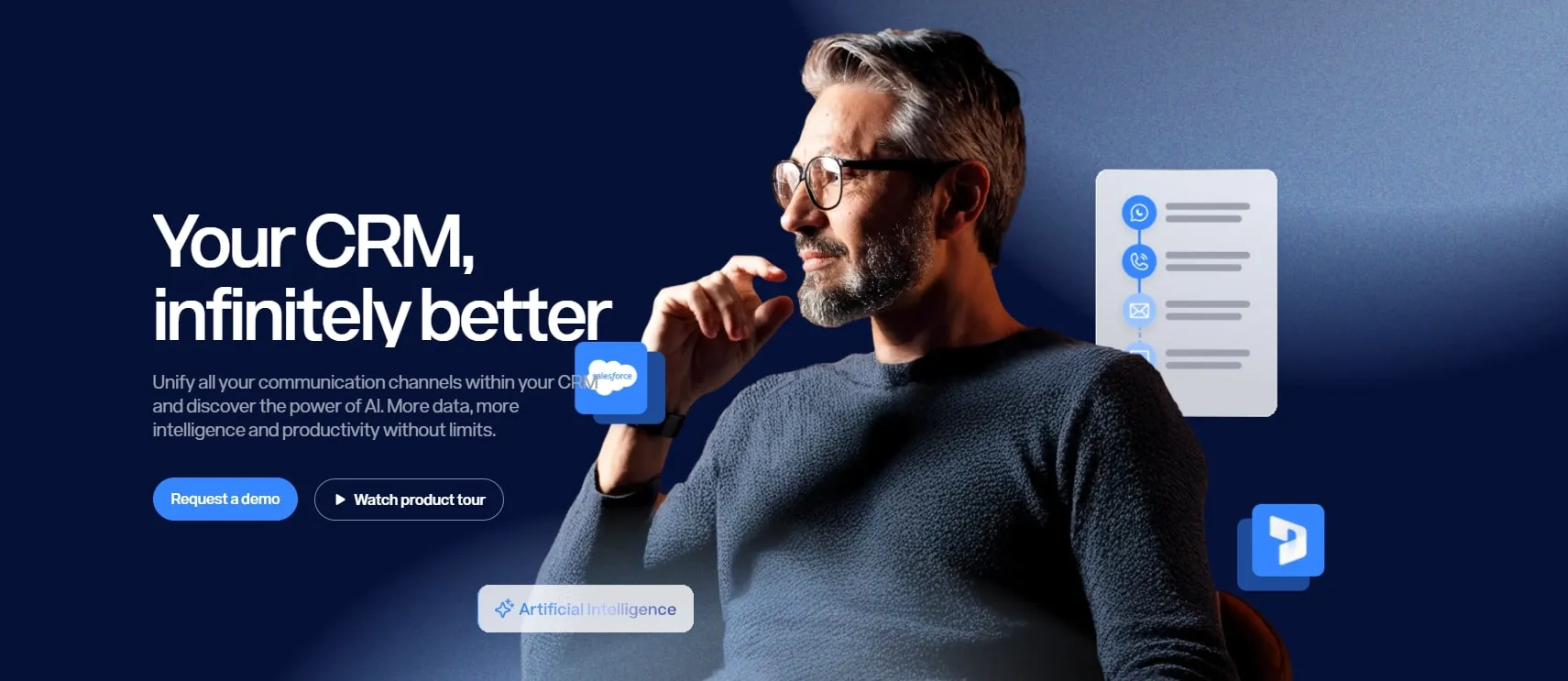
Harmonix AI is not a conventional CRM, but an AI system that installs on top of any CRM like Salesforce, Dynamics, SAP, or custom-built systems and can enhance tools like an auto dialer.
This means there's no need to replace your current system or start long integration projects.
What makes Harmonix unique is its ability to digitize and centralize all communication channels (calls, emails, WhatsApp, video calls, LinkedIn…) directly within the CRM.
Besides simplifying day-to-day operations, it automatically logs all interactions, extracts relevant information, suggests tasks and personalized content,
and allows users to be more productive, faster, and effective in their work.
Harmonix AI is not an AI-powered CRM itself, but a smart enhancer that transforms traditional CRMs into truly proactive tools tailored to current market demands.
Key benefits of Harmonix AI:
- Quick setup with no replacement: installs over existing CRM/ERP
- True omnichannel integration: handles calls, emails, WhatsApp, LinkedIn, and more from one inbox
- Full task automation: updates CRM fields, creates notes, summaries, follow-ups, and more
- Smart suggestions: proposes next steps, content, and emails based on context
- AI assistants and agents: handle admin or customer support tasks without human intervention
- Mobile and voice access: work from anywhere with advanced features
- Business intelligence: delivers market insights, forecasts, and team performance analytics
2. HubSpot CRM with AI
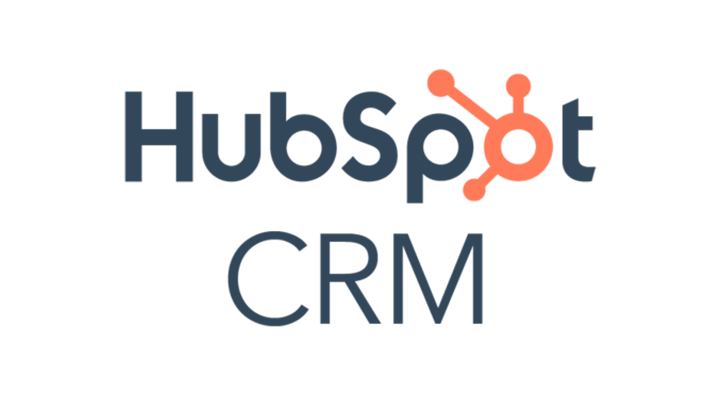
HubSpot CRM includes AI features like behavior prediction, task automation, and content recommendations.
It also offers predictive lead scoring, improving how sales teams prioritize.
Ideal for businesses looking for an all-in-one solution with an intuitive interface and powerful automation features.
3. Zoho CRM Plus

Zoho CRM Plus integrates Zia, its AI virtual assistant that analyzes conversations, predicts outcomes, and detects anomalies in sales processes.
It also offers advanced automation and predictive analytics to optimize campaigns and workflows.
Its toolset enables comprehensive management of sales, marketing, support, and analytics.
4. Salesforce Einstein
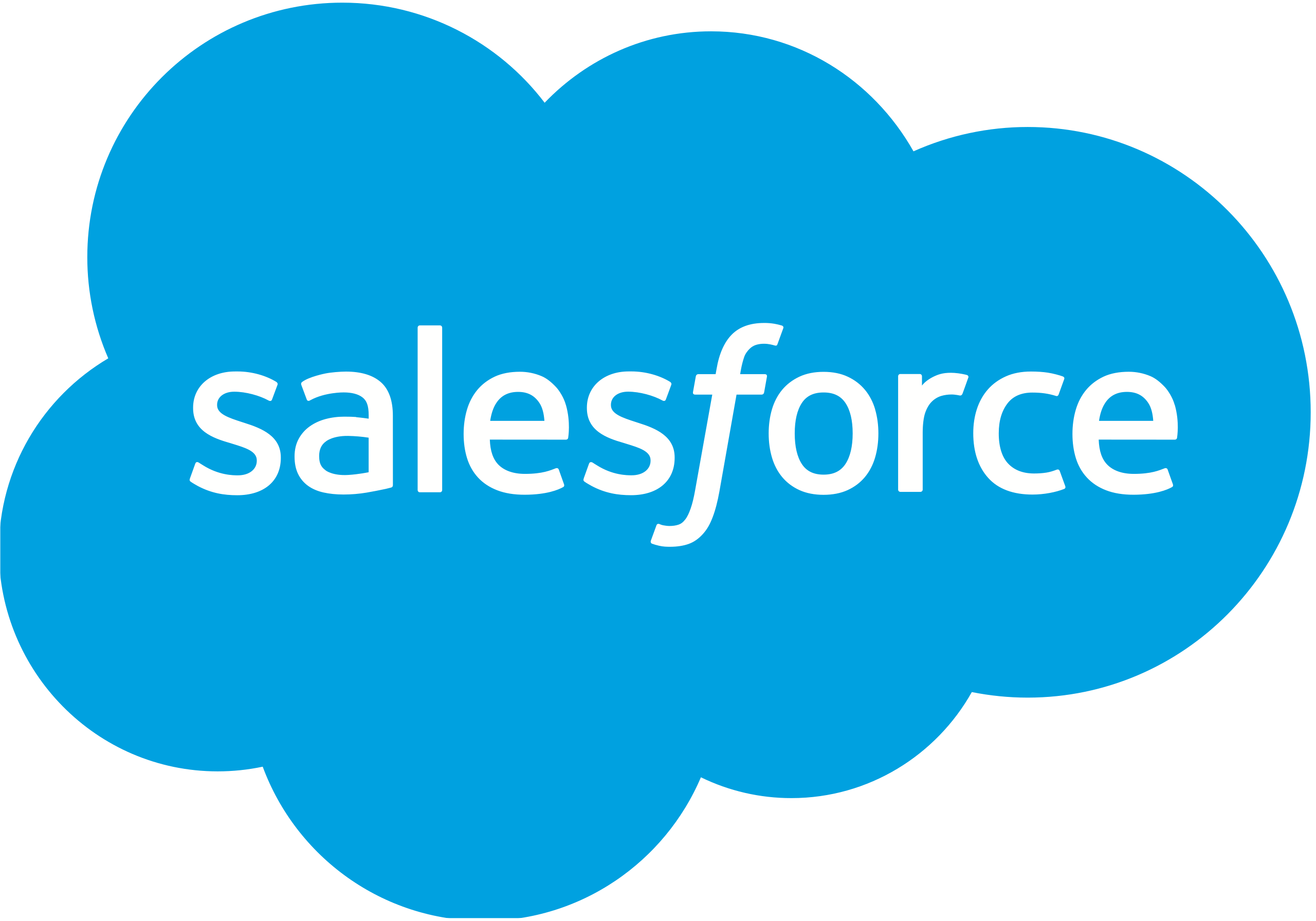
Salesforce Einstein is Salesforce’s AI engine, integrated across all of its clouds.
It provides automatic predictions, personalized recommendations, and advanced analytics.
Einstein processes millions of data points to help you anticipate opportunities, improve service, and boost lead-to-sale conversion.
5. Freshsales with Freddy AI

Freshsales uses Freddy AI to enhance automation and efficiency.
Freddy can predict opportunity closings, prioritize leads, and automate follow-ups.
It also generates alerts and suggestions to help teams make smarter decisions and close deals faster.
6. Pipedrive with Smart Docs

Pipedrive, with its Smart Docs feature, adds intelligent automation to document processes.
You can create proposals, quotes, and contracts directly from the CRM.
With features like smart templates and electronic signatures, it reduces admin time and enhances client experience.
7. Monday Sales CRM
Monday Sales CRM incorporates AI to automate workflows, predict bottlenecks, and deliver proactive alerts.
Its visual interface makes it easy to manage sales processes from a single view.
A great choice for teams seeking collaboration and customization in their sales processes.
8. Nimble CRM
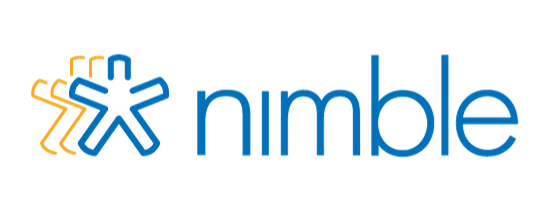
Nimble CRM leverages AI to automatically enrich contacts, organize tasks, and suggest actions based on client history.
It also connects with social networks to provide a more complete view.
Ideal for small to medium businesses looking for simplicity and agility in relationship management.
9. Close CRM

Close CRM integrates AI to automate call center logging, summaries, and performance analysis.
Its design is aimed at maximizing sales team productivity through efficient workflows.
Intelligent automation helps reps stay focused on selling, not paperwork.
10. Copper CRM

Copper CRM connects directly with Google Workspace and uses AI to automate tasks, organize emails, and generate customer insights.
Its familiar interface is ideal for teams working with Gmail and Google Calendar.
It provides smart recommendations and a clear focus on relationship management without friction or learning curve.
11. Keap (formerly Infusionsoft)
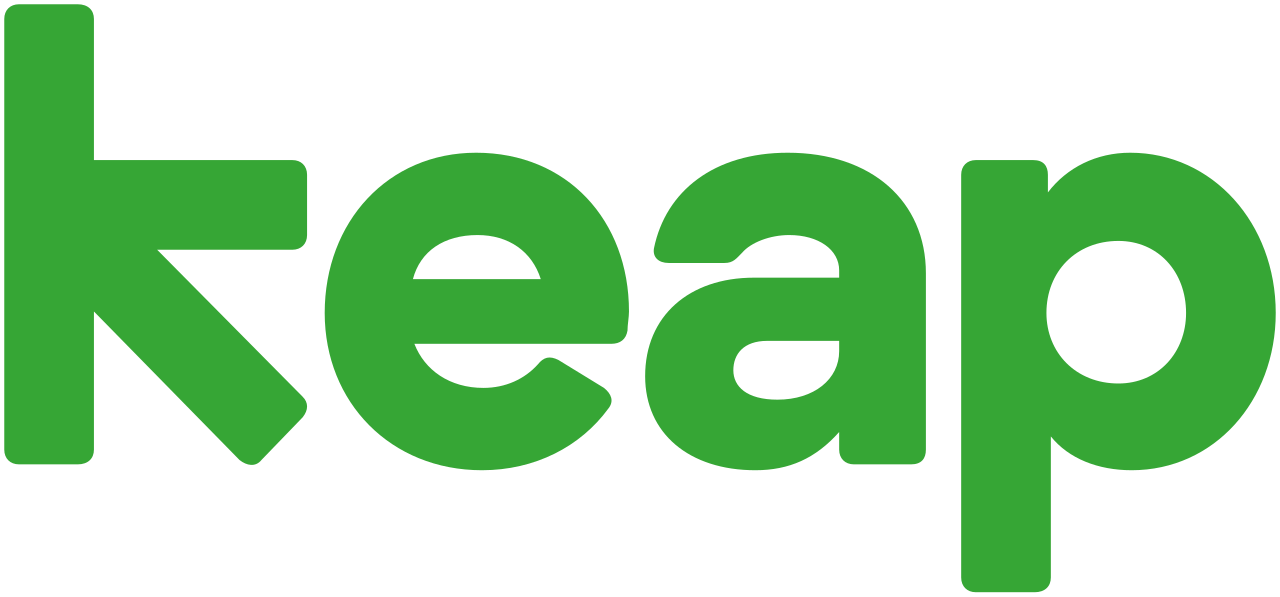
Keap combines CRM, sales, and marketing automation with AI‑driven insights to help small businesses streamline follow‑ups and close deals faster.
Its automation builder uses triggers and conditions to send the right message at the right time, while AI lead scoring highlights the most promising prospects.
12. Nutshell CRM with Sales Automation

Nutshell integrates AI features for pipeline management, automated email sequences, and performance reporting.
Its AI helps identify sales bottlenecks, predict close probabilities, and optimize outreach timing for better conversions.
13. Insightly CRM with AI Analytics
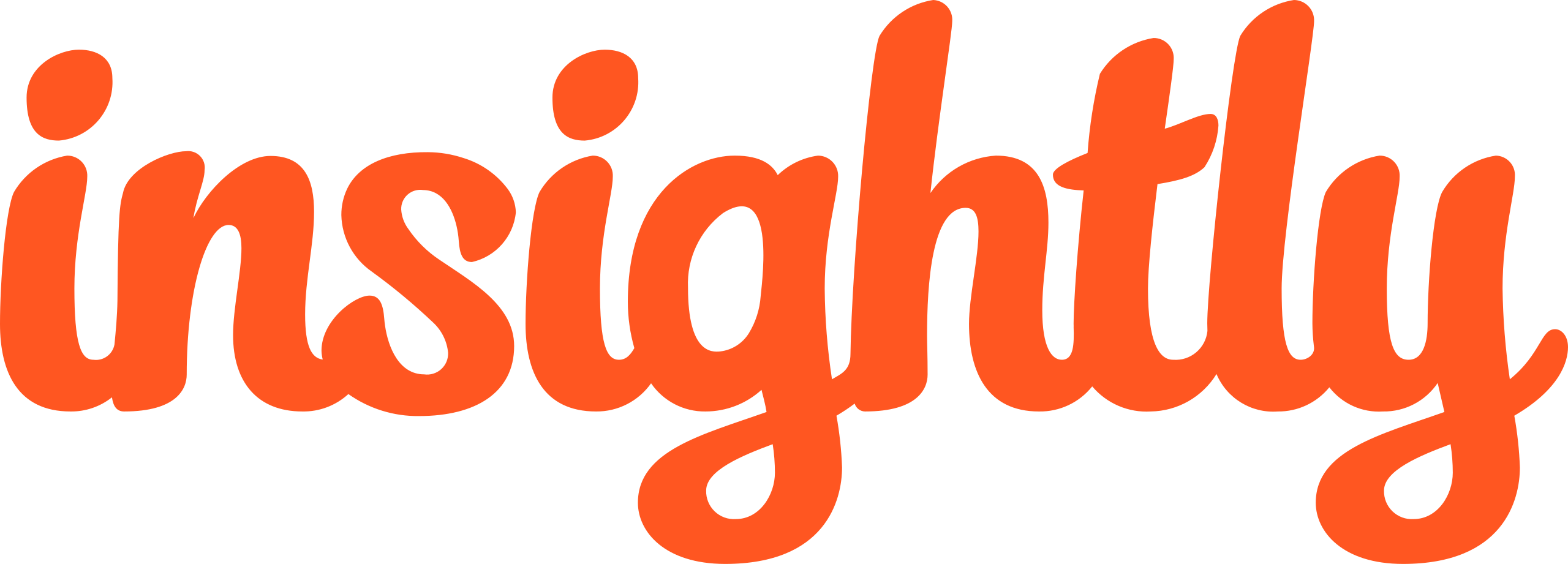
Insightly uses AI technology to deliver advanced relationship mapping, opportunity scoring, and workflow automation.
Its AI engine recommends next best actions, detects at‑risk deals, and integrates with marketing and project management tools for a unified customer lifecycle view.
14. Creatio CRM with Intelligent Workflow

Creatio combines low‑code process management with AI‑powered CRM capabilities.
It automates smart routing, suggests optimal follow‑up actions, and analyzes customer behavior data to refine campaigns and sales strategies in real time.
15. SugarCRM with SugarPredict
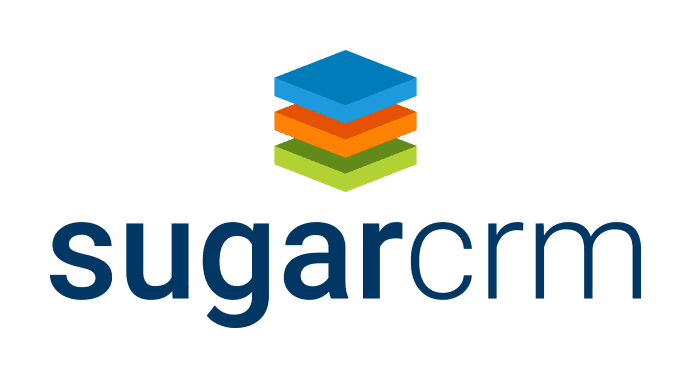
SugarCRM’s SugarPredict AI engine forecasts deal outcomes, prioritizes opportunities, and enriches records with third‑party data.
It uses historical patterns to guide sales and service teams toward the most effective actions while reducing guesswork in decision‑making.
These AI-powered CRMs not only help automate processes, but also enable teams to anticipate opportunities, personalize interactions, and scale commercial productivity.
If you already use a CRM and want to take the next step without changing systems, Harmonix AI is the most effective and complete option to transform your operations from within.
What is an AI-powered CRM?
An AI-powered CRM is a customer management platform (often delivered as SaaS) that not only stores data but also analyzes, learns, and acts based on customer behavior.
Unlike traditional CRMs, which rely on manual data entry, AI-driven CRMs can automate tasks, detect hidden opportunities, and generate real-time recommendations.
This turns the CRM into a true intelligent assistant, helping teams become more strategic and efficient in every interaction.
Before you shortlist vendors, pressure-test your data capture and channel unification inside the CRM.
AI only pays off when every call, email, WhatsApp, and meeting is auto-logged and searchable.
Differences between a traditional CRM and one with artificial intelligence
A traditional CRM focuses on data storage: names, emails, calls, tasks.
But with AI, the system not only stores data, it analyzes information and suggests concrete actions to improve sales or service.
Also, while classic CRMs require manual updates, AI-powered CRMs can log interactions automatically and keep data up to date.
How AI automates repetitive tasks, detects patterns, and suggests actions
Artificial intelligence can take care of tasks like writing follow-up emails, setting reminders, or prioritizing opportunities based on their likelihood to convert.
It also detects behavioral patterns in clients and anticipates needs or churn risks.
This helps teams work with more focus, as the system suggests the ideal next step for each case.
Practical example: how Harmonix logs emails, calls, and WhatsApp in one place
One of the biggest challenges for companies is managing each communication channel separately. This leads to loss of context, errors, and duplicated tasks. To understand how unified telephony and CRM solve this gap, see this overview of call center CRM software.
This leads to loss of context, errors, and duplicated tasks.
Harmonix AI solves this by integrating all channels in one interface, directly on the current CRM, with no need to switch systems.
Calls, emails, WhatsApp messages, or LinkedIn interactions are automatically logged, summarized, and linked to each contact or account within the contact center platform.
This allows users to work faster, with more context, and make better strategic decisions, without having to switch between platforms.
To take this further inside Salesforce, stand up a full Call center for Salesforce so every call, note, and disposition is logged automatically alongside email and WhatsApp threads. Need fast outreach on mobile? You can send WhatsApp message through Salesforce to trigger timely, contextual follow-ups right from the record.
Why companies are moving to AI solutions
Manual data management is no longer sustainable. Teams need tools that reduce operational effort and improve response speed.
An AI-powered CRM enables process automation, valuable insights detection, and personalized interactions, which directly impact productivity and commercial results.
Moreover, when a solution like Harmonix integrates easily on top of what you already use, without replacing it, the change becomes simpler and more effective from day one.
6 key reasons to choose an AI-powered CRM
1. More productivity with less effort
One of the biggest benefits of an AI CRM is its ability to automate repetitive tasks.
From record creation to follow-up emails, AI saves time and reduces errors, allowing teams to focus on selling.
Platforms like Harmonix AI speed up work by logging and suggesting actions without user intervention.
2. Frictionless omnichannel communication
Companies often manage communication channels separately: calls on one side, emails on another, WhatsApp on mobile.
An AI-powered CRM unifies these channels in one place, improving both customer and team experience.
When everything is connected, it’s easier to follow up without losing context, and to act quickly from any touchpoint.
3. Intelligence for better decisions
AI doesn't just manage data. It analyzes it and detects patterns that humans might miss.
This allows teams to anticipate opportunities, foresee risks, and make more strategic decisions based on up-to-date information.
Business intelligence becomes part of daily work, helping teams move with more precision.
4. More human (and automated) follow-ups
A good AI CRM automates follow-ups without losing the personal touch.
It knows when to reach out, what message to send, and through which channel, based on the customer’s behavior.
This leads to a smoother, less intrusive, and more effective relationship.
5. Full alignment of the sales team
When all data is centralized and updated automatically, all team members work with the same information.
This improves coordination, avoids duplication, and makes meetings more useful and action-oriented.
Systems like Harmonix strengthen this alignment by integrating directly into the CRM and turning each interaction into a clear, trackable task.
6. Scalability and digital adoption
An AI-powered CRM adapts to the company’s growth pace.
As interactions increase, the system continues automating and organizing without extra effort.
And when the solution installs on top of the existing CRM, as Harmonix does, adoption is fast, natural, and seamless.
This enables scaling without friction and pushes digital transformation from day one.
Let me know when you'd like me to continue.
If your business already relies on Salesforce, you don’t need to rebuild your tech stack from scratch to get the benefits of AI-powered CRMs.
By layering intelligence and automation directly into your CRM, you can transform it into a complete contact hub.
Whether it’s integrating calls, WhatsApp, or automation features, you can explore how Salesforce telephony enables teams to connect channels, centralize interactions, and boost productivity without disrupting existing workflows.
3 challenges when implementing an AI CRM
1. Lack of team adoption
One of the most common challenges is that users do not adopt the tool because they find it complex or unintuitive.
That’s why it's essential to choose a solution that integrates with the existing CRM, without changing team routines.
Harmonix, for example, installs directly on your current system, no additional training required.
2. Disconnected channels with no context
Many companies still manage their communication channels separately: calls, emails, or WhatsApp operate in isolation.
This limits visibility and the ability to make informed decisions. A good AI CRM must be omnichannel, integrating all contact points into one platform.
3. Lack of structured data
If data isn’t automatically recorded, AI lacks the raw material to learn and provide value.
This is where tools that collect and process data without user intervention stand out, ensuring everything is documented and continuously updated.
What experts say about AI-powered CRMs
More and more experts agree that the future of customer management lies in intelligent automation.
According to industry analysts, AI CRMs are helping companies reduce the sales cycle, increase client retention, and improve decision-making.
They also highlight the positive impact on customer experience, thanks to more personalized and timely responses.
How to choose the right AI CRM for your business
Before making a decision, assess which tools you already use and what specific challenges you want to solve.
Look for a solution that offers omnichannel integration, real automation, and compatibility with your current CRM.
Harmonix stands out because it doesn’t require migrations, installs easily, and enables teams to work faster, with more context, and with better information.
Real use cases with AI-powered CRMs
Internal sales teams use AI CRMs to detect opportunities in real time and reduce the time between the first interaction and the closing.
In customer service, AI enables automated responses to frequent questions, prioritization of critical cases, and reduced wait times.
In industries like recruitment or market prospecting, intelligent CRMs help manage large volumes of data without losing quality in follow-up.
In all these cases, the key is that AI works in the background, supporting teams without disrupting their usual workflow.
Future trends in AI-powered CRMs
The future of CRM lies in smarter, more connected, and user-centered systems.
Artificial intelligence is redefining how customer relationships are managed.
Workflow automation will become the standard, not the exception.. Teams will stop spending time on repetitive tasks and will focus on what truly matters: selling better and delivering quality service.
We’ll see a clear shift toward true omnichannel systems, where calls, WhatsApp, emails, or meetings are fully integrated into a single workflow.
This allows decisions to be made with complete context.
Systems will stop being just databases and will become active assistants, capable of suggesting the next step, prioritizing opportunities, and detecting risks before they arise.
How to Get the Most Out of an AI‑Powered CRM and Multiply Its Impact on Your Business
Adopting an AI‑powered CRM isn’t just a tech upgrade, it’s a chance to rethink how your company manages customer relationships, makes decisions, and leverages every interaction.
The problem is that many companies simply “switch on” the AI features and wait for magic to happen, without a clear plan for implementation, adoption, and measurement. The result? Underwhelming outcomes and wasted potential.
In this practical guide, we’ll break down exactly how to maximize the value of an AI‑powered CRM, from planning and rollout to optimization and future‑proofing, with actionable tips you can apply right away.
1. Strategy First, Technology Second
One of the most common mistakes is picking an AI CRM solely for its feature list or brand reputation. That’s how you end up with a system that’s technically powerful but poorly aligned with your goals.
Before investing, answer these three questions:
- What specific problem am I solving?
Is it slow response times, poor lead conversion, or scattered interaction history? - Which processes need more intelligence and less manual work?
AI can automate repetitive admin, but it can also detect opportunities and predict risks, you need to know where it will add the most value. - How will I measure success?
Without clear KPIs, you’ll have no way to track ROI or prove the investment is paying off.
2. Real‑World Use Cases by Industry
An AI CRM doesn’t work the same way in every business. Here are some tailored examples:
- B2B manufacturing:
- Automating complex quotes with multiple decision‑makers.
- Predicting repeat orders based on historical buying patterns.
- E‑commerce:
- Real‑time product recommendations based on browsing behavior.
- Automatic recovery of abandoned carts with personalized messaging.
- SaaS & tech:
- Early churn alerts based on product usage and support tickets.
- Automated onboarding sequences tailored to each client’s profile.
- Financial services:
- Risk‑based customer segmentation.
- Compliance‑ready communication with full audit trails.
3. Mistakes That Kill ROI
- Automating without oversight: letting AI run everything from day one can lead to errors and a poor customer experience.
- Keeping channels separate: if calls, WhatsApp, and email still run in silos, your AI will be operating with incomplete data.
- Skipping strategic training: even if the tool is easy to use, your team needs to learn how to act on AI recommendations.
- Tracking the wrong KPIs: focusing only on activity volume (calls made, emails sent) instead of outcomes (conversion rate, revenue, customer satisfaction).
4. KPIs That Actually Show Impact
To know if your AI CRM is delivering, focus on these:
- Average response time: how much it’s decreased.
- Lead‑to‑customer conversion rate: before vs. after.
- Customer lifetime value: is it increasing due to more relevant interactions?
- Hours saved on manual tasks: a direct measure of productivity gains.
- Net Promoter Score (NPS): how personalization and speed are impacting satisfaction.
5. Pre‑Purchase Checklist
Before committing, make sure your AI CRM offers:
- Seamless integration with your existing CRM — no forced migrations.
- True omnichannel: calls, email, WhatsApp, social media, all in one dashboard.
- Flexible, configurable automation.
- Predictive insights, not just historical reporting.
- GDPR compliance and industry‑specific data security.
- Open API for easy connection to ERP, BI, or marketing tools (and collaboration platforms like Slack).
6. A Step‑by‑Step Optimization Plan
- Phase 1 – Channel integration: connect all touchpoints before turning on predictive AI.
- Phase 2 – Automate the basics: logging, follow‑ups, reminders.
- Phase 3 – Apply intelligence: use AI to prioritize leads and recommend next steps.
- Phase 4 – Measure and refine: review KPIs regularly, drop low‑value automations, double down on what works.
7. Trends That Will Shape 2025‑2026
- Generative AI for sales and marketing: auto‑creating proposals, campaigns, and client messages.
- Hybrid data models combining internal and external sources for more accurate forecasting.
- Advanced conversational AI that coaches reps live during calls or chats.
- Deep BI integration so leadership sees sales, marketing, and support metrics in one place.
- Adaptive workflows that self‑adjust based on opportunity progress.
8. Preparing Your Team for AI
- Involve key users in setup so workflows match reality.
- Regular feedback sessions to tweak rules, priorities, and AI‑generated messages.
- Validation cycles before going fully hands‑off, to ensure the AI’s decisions match your brand and goals.
9. A Practical End‑to‑End Example
- A lead comes in via LinkedIn.
- AI identifies the sector, role, and likely needs based on profile data.
- The system auto‑creates the CRM record, categorizes it, and assigns it to the right rep.
- A personalized first email is generated and scheduled for optimal open time.
- When the lead responds, AI summarizes the exchange and suggests the next move.
- Every action is logged and tied to the account for future analysis.
10. Fast‑Track ROI Tips
- Start with high‑impact, low‑risk automations like logging and follow‑up reminders.
- Focus on data unification — AI is only as good as the information it has.
- Track KPIs monthly to spot trends early.
- Address the cultural shift: make sure your team sees AI as a time‑saver, not a threat.
Choosing an AI-powered CRM in 2026: what “great” actually looks like
Begin with outcomes, not features
Before you compare logos, define three measurable outcomes you must improve in the next two quarters—e.g., faster speed-to-lead, higher opportunity conversion, and cleaner data for forecasting.
Treat every feature through this lens. If a vendor can’t show how they’ll move those numbers, it’s noise, not value.
Build on a strong data foundation
AI is only as good as its inputs. Verify that the platform (or AI layer on top of your CRM) will auto-log every call, email, WhatsApp message, meeting and note to the correct record without manual effort.
Demand bi-directional sync with your CRM objects, duplicate prevention/merge rules, and field-level mapping for summary data (e.g., last intent, objections, budget). Without this foundation, even the smartest AI becomes guesswork.
Embrace the omnichannel reality
Your buyers move across voice, email, WhatsApp, LinkedIn, and video. Best-in-class systems present a single, threaded timeline so reps never re-ask questions or miss context.
Look for one-click channel switching (call → WhatsApp follow-up, email → call-back) and property/account-aware templates.
True omnichannel shortens response times, reduces friction, and keeps momentum between touches.
Prioritize AI that saves time and lifts win rate
Focus on capabilities that change daily behavior:
- Auto-logging + smart summaries that write usable notes to the CRM.
- Intent extraction (e.g., ready to tour, budget flexible, needs legal review).
- Next-best-action suggestions tied to stage, persona, and recent activity.
- Lead and account prioritization that surfaces true buying signals.
- Live or post-call coaching that improves talk tracks and speeds ramp-up.
If a feature doesn’t reduce admin and increase conversion, it’s decoration.
Verify governance, security, and compliance
You need role-based access, SAML/SSO, audit logs, and PII redaction for transcripts.
Confirm data residency options, encryption at rest/in transit, and a clear DPA for GDPR.
Call recording and AI transcripts should respect retention policies, consent, and subject access requests. Good governance is a sales enabler, not a blocker.
Total cost of ownership (TCO) without surprises
Budget beyond licenses. Model all-in costs for phone numbers, minutes, recording storage, WhatsApp/SMS throughput, and AI features (transcription, summaries, recommendations). Factor admin time for provisioning and audits.
Consolidating tools with a CRM-first layer often cuts your effective cost per rep, even when list price looks higher.
Proof before purchase: pilot like a scientist
Run a 30-day pilot with a control group. Track median speed-to-lead, connect rate, meetings per 100 leads, follow-up latency, and data completeness.
Require call-quality metrics (MOS, jitter) and number reputation monitoring. If results don’t beat your baseline, you have your answer—no guesswork.
A practical playbook to maximize ROI from an AI CRM (or AI layer)
30-60-90 plan you can copy
Days 1–30 (Instrument): connect CRM, telephony, email, WhatsApp, enable auto-logging and AI summaries, import templates, and define three cadences (new inbound, nurture, re-engage).
Days 31–60 (Optimize): A/B test opening lines and timing, tune routing and quiet hours, and create a “best moments” library from top calls.
Days 61–90 (Scale): roll out coaching dashboards, set weekly KPI targets, and automate manager alerts when follow-up latency or no-shows spike.
Unify channels first, then add intelligence
Don’t start with predictive magic. Start with complete, automatic capture of every interaction. Once data is unified, enable prioritization, next-best-action, and content suggestions.
This sequence prevents “AI on fragmentary data,” which leads to bad recommendations and low trust.
High-impact sales use cases (plug-and-play)
- Speed-to-lead: auto-route new inquiries; if no answer, auto-drop a WhatsApp (“quick question about your request—free later today?”) and schedule a call task.
- Meeting creation: after any qualifying call, AI drafts a recap + next steps and proposes time slots; one click sends the calendar invite.
- Pipeline hygiene: AI surfaces stalled opportunities with suggested actions (share ROI sheet, loop in legal, schedule executive call).
Service and success: where AI pays off quietly
- Case deflection: AI suggests help-center content and macro responses for common issues.
- Escalation prediction: tag at-risk accounts (negative sentiment, repeated issues) and notify the owner with a call script.
- SLA integrity: dashboards show breach risk; workflows trigger manager nudges before you miss targets.
Marketing hand-in-hand with sales
- Behavioral scoring feeds sales with warm leads (opens, replies, demo views).
- Campaign attribution ties meetings and revenue to content and channels.
- Message intelligence reveals subject lines and hooks that reliably produce callbacks.
Coaching, governance, and adoption
Replace long feedback meetings with timestamped call clips. Create a shared playbook of objection-handling moments and closing language that works.
For governance, enforce consent, quiet hours, and cadence limits by default—your number reputation will thank you.
KPIs that actually prove impact
- Median speed-to-lead (minutes) — aim for <5 on web leads.
- Connect rate by channel/time — shows when to call vs. WhatsApp/email.
- Meetings per 100 leads — the heartbeat of your funnel.
- No-show rate — reduce with reminders + property/product packs.
- Follow-up latency after meetings — target <2 hours with AI summaries.
- Data completeness on key fields — >90% via auto-logging.
- Rep ramp time — should trend down with coaching insights.
Common pitfalls (and quick fixes)
- Channel silos remain: integrate all touchpoints; enforce single-record truth.
- Over-automation feel: keep preview steps for high-value deals; personalize AI text with two human edits.
- Spam flags on calling: adopt adaptive pacing, monitor number reputation, and mix channels.
- Template fatigue: rotate monthly and track reply rates; retire underperformers.
Future-proof without re-platforming
Pick a system that layers intelligence over your current CRM so you can add capabilities incrementally: predictive routing, AI agents for email/voice/WhatsApp, and low-code workflows.
Ensure there’s an open API so you can connect BI, ERP, and data warehouses as you mature.
Sample cadences that feel human (copy/paste)
New inbound (Days 0–7)
- D0: Call within 5 minutes → if no answer, WhatsApp with two time options.
- D1: Email info pack + calendar link (AI-drafted).
- D3: Preview-mode call using AI notes; log objections automatically.
- D5: Short WhatsApp tip tied to their interest.
- D7: Call + “still helpful?” check.
Re-engage (Days 14–28)
- D14: Email with new value (case study, feature relevant to last objection).
- D21: WhatsApp micro-video; one-tap call-back.
- D28: Manager-signed note; invite to quick check-in.
A simple ROI model you can defend
- Time saved: If summaries/auto-logging save 8 minutes per conversation and a rep handles 25/week, that’s 3+ hours back—~10–15% more selling time.
- Conversion lift: Improving speed-to-lead and follow-up consistency can raise meetings per 100 leads from 10 → 15; revenue follows.
- Tool consolidation: Replace separate dialer, notes app, and messaging add-ons with a CRM-first layer to cut licenses and IT overhead.
Where Harmonix AI fits (and why teams pick it)
If you already run Salesforce, Dynamics, SAP, or a custom CRM, Harmonix AI acts as a smart layer that installs on top, not instead. You get true omnichannel (calls, email, WhatsApp, LinkedIn) inside the CRM, automatic capture of every interaction, AI summaries and next steps, and agent/assistant automations for repeatable tasks.
The payoff is speed, clean data, and consistent execution—without migrations or tool sprawl.
Why Harmonix AI is the solution your team needs
Harmonix AI transforms how teams work, making them more productive, faster, and better informed.
Thanks to its AI, every interaction becomes a source of value and learning.
Unlike other tools, Harmonix centralizes all communication channels into one platform, within your existing CRM.
This delivers a 360° view of the customer without switching environments.
It also installs on any CRM, without replacing it, enabling fast and frictionless adoption.
That makes it a practical and powerful solution, ideal for teams that want results from day one.
With Harmonix, the future of CRM is not only possible, it’s already happening.
For companies engaged in b2b sales or building inside sales teams, AI-powered CRMs provide an essential advantage.
They streamline lead qualification, automate outreach, and prioritize prospects more effectively, making them vital tools for high-performing sales environments.
Frequently Asked Questions (FAQs)
We answer some common questions about using AI-powered CRMs and the specific capabilities of Harmonix.
How can an AI-powered CRM improve sales analysis?
AI detects patterns, forecasts closings, and prioritizes opportunities in real time.
This helps make better decisions and anticipate risks or pipeline deviations.
What advantages does it offer for client prospecting?
By automating tasks like lead scoring, content generation, and follow-ups, AI allows for faster and more accurate prospecting.
Teams spend more time connecting with the right clients.
How does Harmonix ensure GDPR compliance and data protection?
Harmonix is designed with a focus on security, traceability, and regulatory compliance.
All activity is recorded and managed in accordance with GDPR requirements, ensuring responsible data handling.
Can I view the entire client history even if they used multiple channels?
Yes. In omnichannel solutions like Harmonix, you can access all customer interactions from a single place, regardless of whether they were calls, WhatsApp, emails, or meetings.
How hard is it to migrate from my current CRM to Harmonix?
You don’t need to migrate. Harmonix installs over your current CRM, without replacing it.
This avoids disruptions and allows you to start using the tool almost immediately.
Can I use Harmonix from my phone or outside the office?
Yes. It’s designed for full mobility.
You can access key features, log activities by voice, and stay connected from anywhere.
Does the AI generate follow-ups automatically for me?
Exactly. The AI suggests and automates follow-ups, from personalized emails to specific tasks, based on the content of each conversation and the CRM context.
This makes work easier, faster, and more effective.









